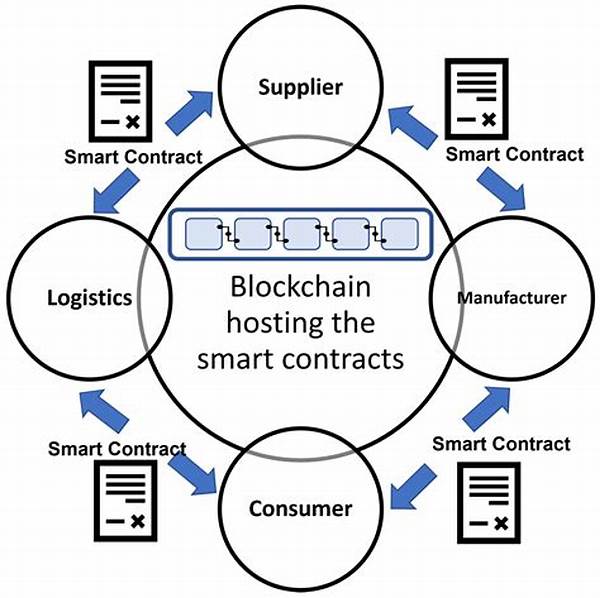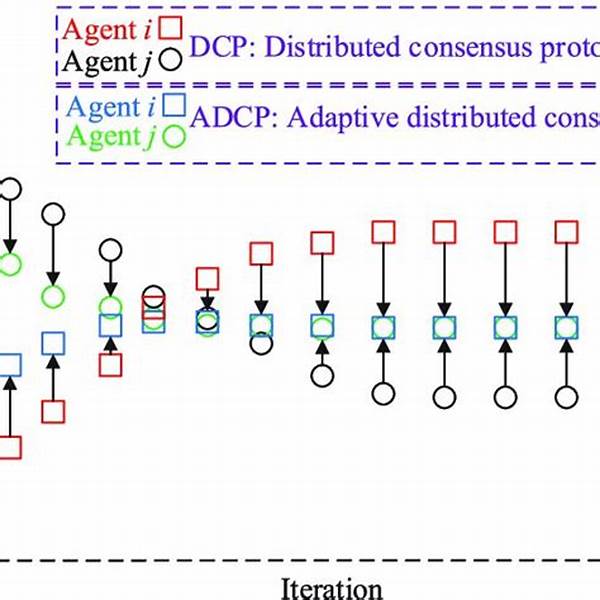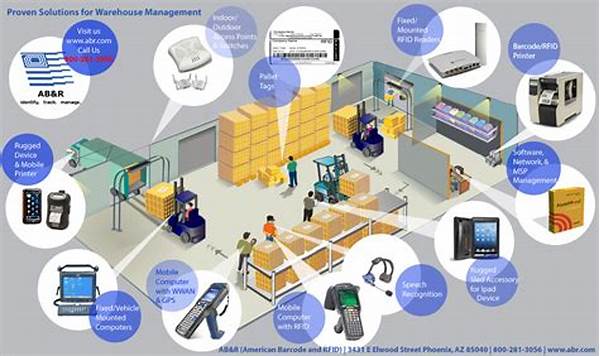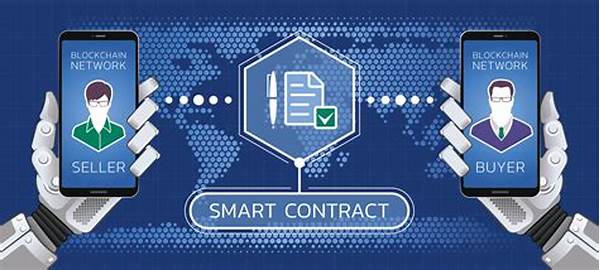Once upon a time, in the bustling world of global trade, businesses faced complex and tangled processes in their supply chains. It was a realm of inefficiencies and trust issues, where manual processes reigned supreme. But then, the winds of innovation began to blow, bringing disruptions of the digital kind. Enter smart contracts in supply chains—a game-changer that promised to transform how businesses operated.
Read Now : Layer 1 And Layer 2 Blockchain Solutions
Why Smart Contracts Matter in Supply Chains
Alright, picture this: back in the day, supply chains were like that friend who always showed up late and full of excuses. But now, with smart contracts in supply chains, we’re talking about a streamlined, more reliable process. Imagine a world where contracts are self-executing, conditions are automatically met, and you don’t have to chase people down to make things happen. That’s the magic of smart contracts. They’re the superheroes the industry needs—bringing transparency, cutting out the middlemen, and saving both time and money. So, whether you’re dealing with product tracking, payments, or compliance, these digital contracts have got your back, ensuring everything runs like a well-oiled machine.
The Core Benefits of Smart Contracts in Supply Chains
1. Automation to the Max: Smart contracts in supply chains mean no more manual updates. They automatically execute and update as conditions are met—talk about hands-off!
2. Trust Through Transparency: Since smart contracts are on the blockchain, all parties can see what’s up in real-time, building trust without needing an army of auditors.
3. Goodbye, Middlemen: These contracts cut out the intermediaries, making transactions faster and cheaper—say “later” to unnecessary fees.
4. Real-time Tracking: Businesses can track products in real-time, reducing loss and theft. Know where your stuff is at all times!
5. Secure and Immutable: The blockchain tech behind these contracts makes them tamper-proof. Once something’s done, it’s done—no take-backs, no manipulation.
Real-world Applications of Smart Contracts in Supply Chains
Now, you might be thinking, “Alright, this all sounds cool, but where’s the real-world action?” Well, let’s dive into how smart contracts in supply chains are shaking things up on the ground. They’re playing a crucial role in sectors like food and pharmaceuticals, ensuring that products are authentic and have kept their quality along the way. Imagine tracing that avocado from farm to table or ensuring that your meds haven’t been tampered with—that’s smart contracts doing their thing. Plus, they’re cutting down on paperwork and making cross-border transactions a breeze. No more drowning in a sea of forms or waiting forever for international approvals. Talk about leveling up the game!
Read Now : Gas Consumption Reduction In Dapps
Challenges Faced by Smart Contracts in Supply Chains
Don’t be fooled—jumping on the smart contracts train ain’t without its hiccups. For starters, integrating this tech into existing systems can be like fitting a square peg into a round hole. Companies might struggle with the technical know-how or scaling the operations smoothly. And while smart contracts in supply chains are secure, any bugs in the code could spell trouble. Consumers are still warming up to the idea too—it’s like explaining Wi-Fi to your grandparents. But hey, every innovation has its hurdles, right?
The Future of Supply Chains with Smart Contracts
Fast forward to the not-so-distant future, and it’s clear that smart contracts in supply chains are no fleeting trend. They’re set to shape the supply chain industry, transforming it into a model of efficiency and transparency. Think less red tape, smoother transactions, and robust trust among parties. Companies equipped with this tech will likely outpace their competition, creating a ripple effect in how global supply chains operate. Whether it’s integrating IoT devices for real-time data or coming up with even smarter smart contracts, the potential’s endless—and exciting!
Implementing Smart Contracts in Supply Chains
Jumping into the digital fast lane with smart contracts isn’t a walk in the park. It requires preparation, education, and a shift in mindset. Businesses need to set the right tech foundation and train their teams to handle this new paradigm. Part of it involves collaborating with tech partners who get the ins and outs of blockchain. It’s like putting together a band—every member needs to be in sync. Once you’ve got that harmony, integrating smart contracts in supply chains will lead to undeniable growth and innovation.
Smart Contracts in Supply Chains: A Summary
In wrapping it all up, smart contracts in supply chains are truly a force to be reckoned with. They come bearing solutions to age-old problems like inefficiency, lack of transparency, and high costs. By automating processes, securing transactions, and creating a transparent environment, businesses unlock a new realm of possibilities—from food to pharma and beyond. Sure, there are challenges ahead, but with tech advancing at a rate that could rival a space rocket, it’s just a matter of time before these digital contracts become a mainstay in industries globally. And let’s be real, who wouldn’t want to be part of this digital revolution’s front line?



